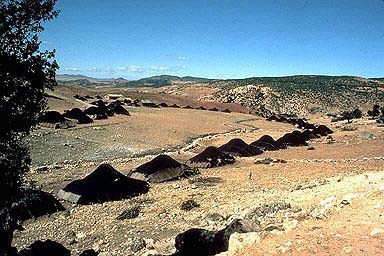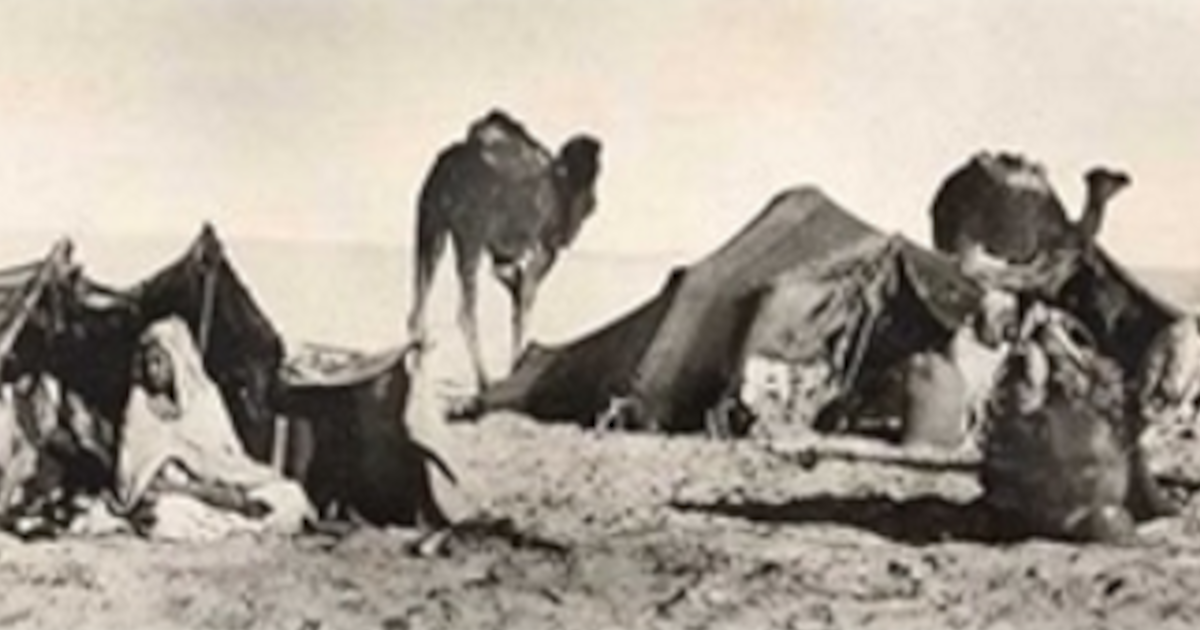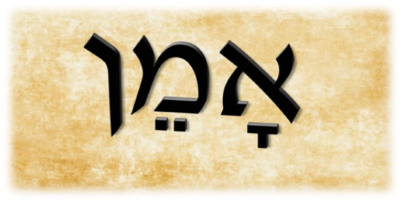What Does "Grace" Mean in the Hebrew Bible?
Most theologians will define "grace" as "unmerited favor." But we must be careful not to interject a theological bias into the text. So first we need to understand what the English word "grace" means outside of theology. The dictionary provides two basic definitions for grace.
- Elegance or beauty of form, manner, motion or action.
- Mercy; clemency; pardon
Because the Hebrew language is vastly different from English, we need to examine the Hebrew meaning of this word to see if one or both English definitions are appropriate definitions for the Hebrew word translated as grace.
The Hebrew word translated as grace is חן (hhen, Strong's #2580) and is a two-letter parent root. In order to uncover the original meaning of this word it is important that we first examine each of the roots and words that are derived from this parent root.
Cultural Context: The Camp of Israel
From חן (hhen) comes the verbal root חנה (Hh.N.H, Strong's #2583), spelled exactly the same except with the addition of the letter ה (h) at the end. The following verse provides a good example of the meaning of this verb.
And Isaac departed thence, and pitched his tent in the valley of Gerar, and dwelt there. (KJV, Genesis 26:17)
This verb means "to pitch a tent" or "to camp." The noun derived from this verb is מחנה (mahhaneh, Strong's # 4264).
And it came between the camp of the Egyptians and the camp of Israel; and it was a cloud and darkness to them, but it gave light by night to these: so that the one came not near the other all the night. (KJV, Exodus 14:20)
When we think of a camp, we think of tents scattered about in a general area, but the camps of the Ancient Hebrews were a little different as the picture below demonstrates.

The tents were set up in a sort of circle and these tents serve as a "wall" separating the inside of the camp from the outside. At this point it would be helpful to examine the pictographic Hebrew script that was used to originally write the word חן (hhen).
The Hebrew Word חן (ḥen) – A Pictographic Breakdown:
Letter ḥet (ח):
- Ancient pictograph: A wall
- Meaning: Separation (a wall separates the inside from the outside)
Letter nun (ן):
- Ancient pictograph: A sprouting seed
- Meaning: Continue (the seed continues the lineage to the next generation)
Combined Meaning:
- “A wall that continues” — just like the tents encircling the camp, forming a continuous wall that separates and protects the inside.

Grace as Protection and Continuity
A second verbal root derived from the parent root חן (hhen) is חנן (Hh.N.N, Strong's #2603), spelled exactly the same except with the addition of the letter ן (n) at the end. This verb is often translated as "to be gracious" or "have mercy," however these are abstract terms and do not help us understand the meaning of this verb from a Hebraic perspective, which always relates words to something concrete. One of the best tools to use to find the more concrete meaning of a word is to look at how that word is paralleled with other words in poetical passages. In the following verses the translation of the verb חנן (Hh.N.N) will be underlined and the word that it is paralleled with will be in bold.
Have mercy upon me, O LORD; for I am weak: O LORD, heal me; for my bones are vexed. (KJV, Psalm 6:2)
Hear, O LORD, and have mercy upon me: LORD, be thou my helper. (KJV, Psalm 30:10)
But thou, O LORD, be merciful unto me, and raise me up, that I may requite them. (KJV, Psalm 41:10)
Be merciful unto me, O God, be merciful unto me: for my soul trusteth in thee: yea, in the shadow of thy wings will I make my refuge, until these calamities be overpast. (KJV, Psalm 57:1)
O turn unto me, and have mercy upon me; give thy strength unto thy servant, and save the son of thine handmaid. (KJV, Psalm 86:16)
Through this process we find that this Hebrew verb is paralleled with such ideas as healing, help, being lifted up, finding refuge, strength and salvation (literally rescue). From a concrete Hebraic perspective, חנן (Hh.N.N) means all of this, which we can sum up with "providing protection." Where does one run to for protection? The camp, and now we see how חנה (Hh.N.H), the camp, and חנן (Hh.N.N), protection, are related. Now we need to see how these words are related to the parent root חן (hhen).
A gift is as a precious stone in the eyes of him that hath it... (KJV, Proverbs 17:8)
In this verse, the Hebrew word חן (hhen) is translated as "precious," something of beauty and value.
A gracious woman retaineth honour: and strong men retain riches. (KJV, Proverbs 11:16)
In this verse the "grace," or "beauty," of the woman is contrasted with the strength of a man.
Favour is deceitful, and beauty is vain: but a woman that feareth the LORD, she shall be praised. (KJV, Proverbs 31:30
Again, this Hebrew word is being paralleled with "beauty." This "beauty" is something that is precious and graceful, which is exactly how the Hebrews would have seen the "camp of protection," a graceful and precious place."
Conclusions
Let us now return to our original definition of the English word "grace."
- Elegance or beauty of form, manner, motion or action.
- Mercy; clemency; pardon
While these definitions do apply to the Hebrew word חן (hhen), they do not completely convey the full emotion and spectrum of the Hebrew word. This is the problem with translating Hebrew into English. The English vocabulary is limited in how it can express the full meaning of a given Hebrew word.

Like what you’re discovering? Continue the journey from Bible reader to translator.
|






